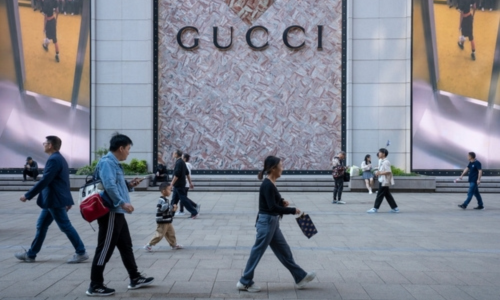China’s Cooling Luxury Market: Even Ferrari Falls Out of Favor
Once, Chinese demand sent Western luxury goods—watches, cars, wines, and spirits—soaring to unprecedented heights. But now, sales are faltering across the board. What’s driving this change, and how severe is the situation for the industry?
A watch costing hundreds of thousands of dollars, sleek Western sedans and sports cars, renowned Bordeaux labels, Cognacs, cigars priced at 9,000 euros ($10,000) each: For years, it seemed there was no ceiling to China’s appetite for Western luxury.
It’s no surprise, given that no other country has seen such an explosive rise in centi-millionaires over the past decade as China, finews.ch revealed last week. Between 2013 and 2023, their ranks more than doubled, surging by 108 percent.
Wealth in China Continues to Grow…
This wealth expansion trickles down to the slightly less affluent strata of the ultra-rich, reaching multimillionaires. According to the latest edition of Knight Frank's The Wealth Report from Knight Frank, published in the spring, the number of ultra-high net worth individuals in China (those with a net worth of $30 million or more) is expected to increase by another 47 percent by 2028.
The conditions for an ongoing luxury boom would therefore appear to be firmly in place.
Yet the Numbers Tell a Different Story
However, recent data paints a contrasting picture:
- Automobiles: According to export data from the European Automobile Manufacturers’ Association (ACEA), EU auto exports to China dropped from 24 billion euros in 2022 to 19.7 billion euros in 2023. The luxury segment was hit particularly hard: Porsche reported a 33 percent decline in sales in the first half of 2024 compared to the previous year. Even Ferrari saw a 23.4 percent reduction in sales in mainland China.
- Swiss watch exports to mainland China fell by 21.6 percent in the first half of 2024, while shipments to Hong Kong dropped 20 percent, according to the Swiss Watch Federation (FH).
- French wine and spirits exports to China also slipped, down 6 percent in 2023 compared to the previous year.
In response, nerves are fraying across the luxury sector. Johann Rupert, the founder and chairman of Swiss luxury titan Richemont, recently urged the watch industry to scale back production due to softening demand, as reported by Bloomberg (paywalled). Despite Richemont’s relatively strong performance for the fiscal year ending March 2024, sales in mainland China were clearly under pressure.
LVMH: Asia Sales Plunge 10 Percent
Meanwhile, LVMH, a key competitor, disappointed markets by reporting a 10% drop in sales across Asia (excluding Japan) in its half-year results, as noted by CNN and others.
These double-digit declines seem alarmingly steep. Yet, they are not cause for panic. China still accounts for roughly 15 percent of the global personal luxury goods market.
Complex Causes
Nonetheless, China has been a critical growth engine for the luxury sector over the past two decades. The slowdown is hitting brands particularly hard if they’ve relied too heavily on China as their primary driver of growth.
The causes behind this «luxury flu» in China are complex. Political tensions have certainly played a part. A dispute has erupted between the EU and China over electric vehicles, with the EU threatening tariffs on Chinese EV imports and Beijing threatening retaliatory tariffs on Western luxury goods.
«Luxury Shaming» on the Rise in China
Even without such external pressures, Western symbols of wealth and luxury are currently losing favor in Chinese society. Jing Daily, an online platform focused on China’s luxury market, recently published an insightful analysis.
One factor is China’s relatively weak domestic economy, which is squeezing the middle class. Another is the Chinese government’s «common prosperity» campaign, which calls for a more moderate approach to luxury consumption. In May, Beijing even shut down the social media accounts of influencers accused of flaunting their wealth.
A Cultural-Political Cocktail
China’s rich aren’t getting any poorer, but they are increasingly avoiding Western luxury brands.
This cultural and political cocktail is likely to dampen the spirits of Western luxury manufacturers for quite some time.




















